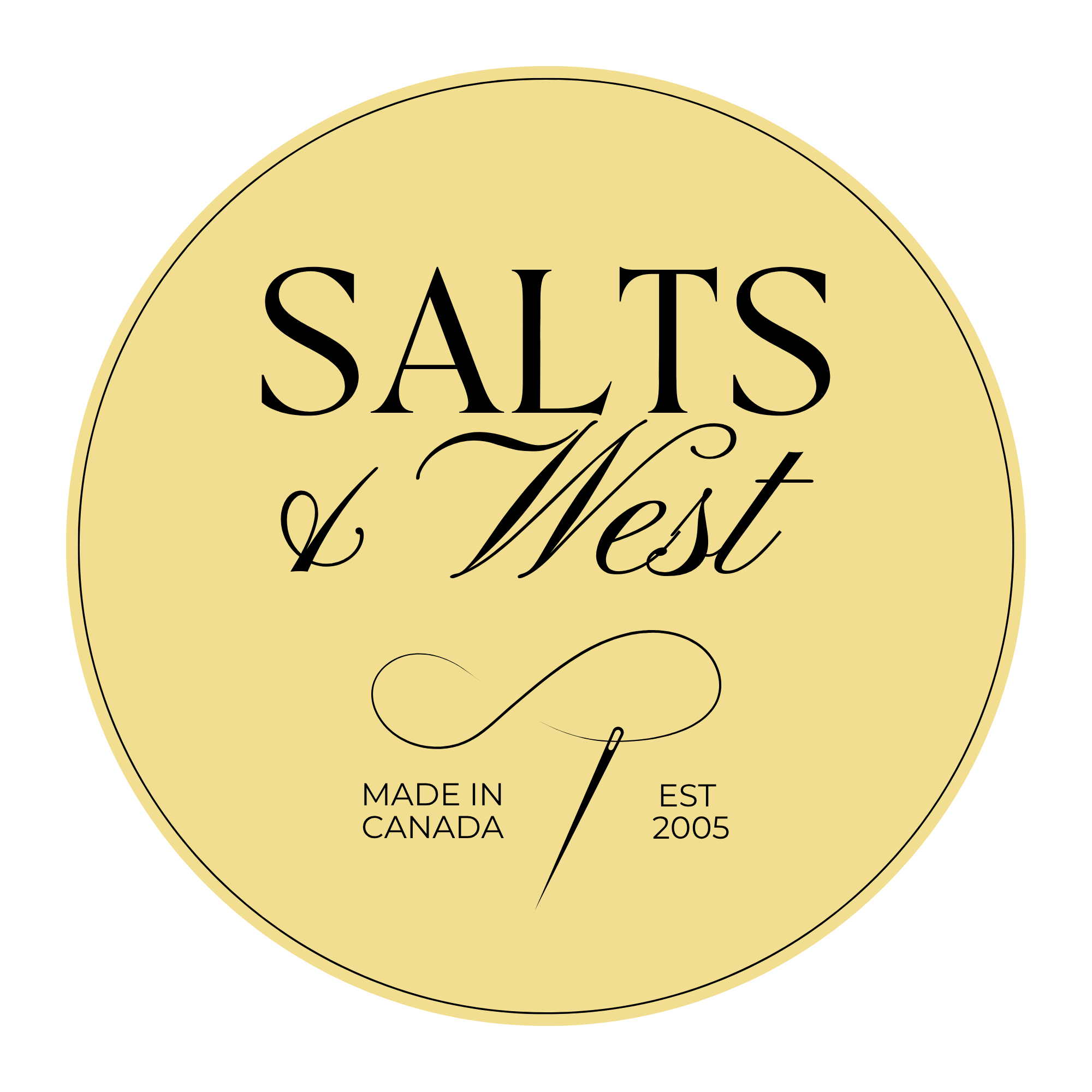A huge shift towards sustainability is on the horizon! From recycling, going more 'zero waste', and investing in eco-friendly products, most of us are trying to be more KIND to Mother Earth. Cheers to that!
But did you know that washing your clothes could actually be poisoning our waters and food supply?
On average, a synthetic fleece jacket releases 1.7 grams of microfibres (the tiny threads that shed from fabrics) each wash, travelling to your local wastewater treatment plant, where up to 40% of them end up in rivers, lakes, and oceans. Studies indicate that microfibres make up 85% of human-made debris on shorelines worldwide.
Along with microbeads found in common toothpastes and shower gels (which will be banned in Canada as of July 1, 2018 - yay!), synthetic microfibers (like nylon, polyester, acrylic) are particularly dangerous because they have the potential to poison the food chain. Readily consumed by fish and other wildlife, these plastic fibres can bioaccumulate, concentrating toxins in the bodies of larger animals higher up the food chain.
Is Bamboo Fabric better?
While Viscose and Rayon (from Bamboo) becomes synthetic in the milling process, it is not made from petroleum; it’s a “regenerated cellulosic fibre” made from the cellulose of the plant. Once the the thread is complete any microfibres lost in the washing and wearing process are biodegradable! You can get the athletic and wicking features of a microfibre without the water polluting cost by switching your next clothing purchase to bamboo fabric clothing.
Bamboo has added benefits:
- anti-bacterial, anti-fungal, hypoallergenic
- one of the fastest growing plants in the world, absorbing about 5 times the amount of carbon dioxide as an equivalent stand of trees
- grows with no irrigation and no pesticides or synthetic inputs. And currently there are no known genetically modified organisms (GMO) variants of bamboo.
What about the process to make a Bamboo Rayon fibre? Isn't that a huge polluter?
The answer to that is variable. If you are buying from a reputable source it is not. Any chemical used in producing reputable bamboo fabric products would go through a closed loop mill system. This means that the water and chemical is retrieved from the system and reused for future manufacturing processes, the chemical and waste water in a closed loop mill does not exit the mill into the environment. If you were buying less expensive bamboo fabric products from an unknown company they may be dumping the chemical and waste water into the environment, so buyer beware.
If you are searching for a 100% sustainable fibre you want to look at 100% hemp of 100% linen products, these products are very sustainable in the wash as well as when produced. We are adding some linen products to our line at Salts & West very soon!
What about dyes? Aren't dyes toxic?
Yes! Dyes can be extremely toxic! To avoid the toxic ones, look for companies who use Oeko-Tex certified dye process (fabrics are third party tested for no chemical residue) or natural dyes. This process also includes the testing of the raw materials and the fibre making process. Salts & West uses Oeko-Tex certified bamboo fabrics in all of our bamboo clothing products.

At Salts & West, we LOVE our oceans and want to make sure that our clothes don't pollute them. Check out our beautiful Joy Wrap Bamboo Dress, Flow Bamboo Capris, and West Coast Printed TShirts and Tanks.
The waters, the fishies, and your health thank you for taking the time to research your clothing products!
What are ways you are being KIND to Mother Earth? We want to hear all about it!
Love and blessings,
Nicole and the ladies at Salts & West
Sources:
https://www.twosistersecotextiles.com/pages/what-is-viscose
https://www.twosistersecotextiles.com/pages/what-is-viscose
https://pubs.acs.org/doi/abs/10.1021/es201811s
https://www.theguardian.com/environment/2016/jun/20/microfibers-plastic-pollution-oceans-patagonia-synthetic-clothes-microbeads



1 comment
I love my bamboo pillow